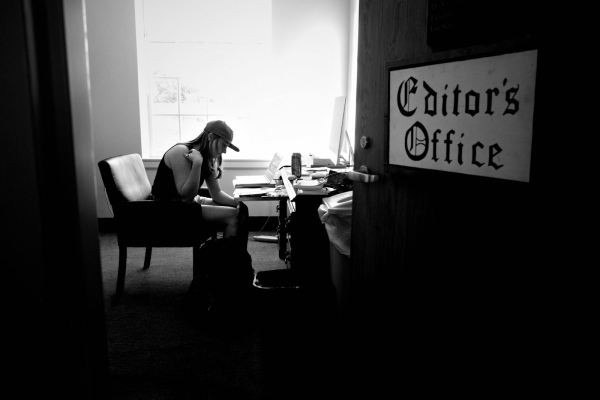Staff Editorial – Resilience is Key
September 30, 2021
Per usual, there are a barrage of important topics our Editorial Board could cover in this week’s editorial piece. (Though, 300 words can hardly do justice to a topic such as climate change, federal debt, campus safety, sexual health and whatever else we tackle.)
We want to focus this week’s column on something that takes extreme priority in our lives here at the Old Gold & Black: resilience.
Yes, resilience. College is a stressful time for students, especially around this time of the semester. And it is incredibly easy to get swept up in activities and the narrative of working until you are burnt out. But breeding pessimism through overworking yourself is like impaling yourself with a double-edged sword. But instead of a normal sword it’s, like, a boomerang sword. Double ow. Consider both of those kidneys accounted foThat is where resilience comes in. Resilience is defined as “the process of finding healthy ways to adapt and cope with adversity and distress.” It is the most overlooked — and yet, the most important — aspect of mental health recovery and self-care.
We understand how it is easy, especially as Wake Forest students, to think you are “too capable” to ask for help. Spoiler number one: you aren’t. Spoiler number two: you wouldn’t have to ask for help in times of deep distress if you learned to practice resilience and asked for help before things got bad in the first place.
That’s right, this Editorial Board is dishing out tough love right now. Eat up.
Out of the research and practice we have done surrounding mental health and resilience, we have dis- covered that increasing self-awareness, mindfulness, physically and emotionally “letting go” and leaning into positive emotions are the
best ways to strengthen one’s resilience.
But recovery and resilience look different for everyone. Some members on our board struggle with Ob-essive Compulsive Disorder and other anxiety disorders. For them, resilience means leaning into their fears and doing things that make them uncomfortable, even though it feels like the end of the world. For those on our board who struggle with depression, resilience may mean setting more short-term, realistic goals and exercising more consistently.
Whatever resilience means for you, we applaud you in your efforts to and encourage you to keep moving forward at your own pace.

















